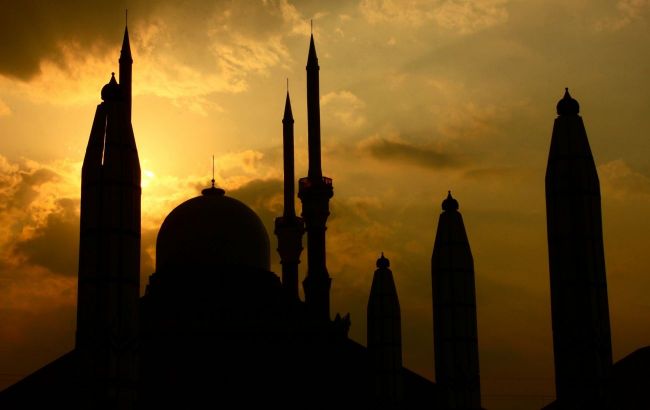Ramadan 2025. When Islamic holiest month begins and ends
 When Ramadan begins in 2025 (photo: Pixabay)
When Ramadan begins in 2025 (photo: Pixabay)
Ramadan is the ninth month of the lunar Muslim calendar, which has a special spiritual significance for believers. During this period, Muslims from all over the world observe a strict fast from dawn to dusk, intensify their prayers, and engage in charity.
When does Ramadan start and end in 2025
In 2025, the month of Ramadan will begin on the evening of February 28 and last until sunset on March 29. After the end of the fast, on March 30, Muslims will celebrate Eid al-Fitr, which symbolizes the end of the holy month.
Since the Muslim calendar is based on the phases of the moon, the exact start date of Ramadan may vary from region to region. The beginning of the month is determined by the appearance of the thin crescent of the moon after the new moon, as observed by astronomers.
In many countries, the date of Ramadan is approved at the state level. This allows Muslims to prepare for fasting and spiritual practices in advance.
The essence and meaning of Ramadan
Ramadan is a period of spiritual purification, self-discipline, and strengthening of faith. Muslims fast to overcome earthly temptations, develop humility, and draw closer to Allah through prayers and good deeds. This month also reminds believers of the importance of mercy, compassion, and helping those in need.
Of particular importance is the night of Laylat al-Qadr (Night of Power), when the first revelation of the Qur'an was revealed to Prophet Muhammad. This night falls on the last decade of Ramadan and is considered the holiest night of the year. Muslims believe that prayers performed on this night bring special blessings and forgiveness.
Rules for fasting during Ramadan
Fasting during Ramadan is one of the five pillars of Islam. Believers abstain from eating, drinking, smoking, and intimacy from dawn to dusk.
The first meal, suhoor, is eaten before dawn, and the fasting meal, iftar, is eaten after sunset, traditionally with dates and water. Healthy Muslim adults are obliged to fast, but there are exceptions for children, the sick, pregnant women, and travelers.
If a person is unable to fast for objective reasons, he or she can pay alms (fidya) to compensate for the days missed. Fasting helps believers develop patience, willpower, and compassion for the less fortunate.
During Ramadan, there is a tradition of reading the entire Quran (photo: Freepik)
Prayers and spiritual practices during Ramadan
Ramadan is a period of intense prayer and spiritual self-improvement. In addition to the five obligatory prayers (namazes), Muslims perform an additional evening prayer, taraweeh, which is performed after the night prayer. Many believers strive to read the entire Qur'an within a month, deepening their knowledge of the holy scripture.
Particular attention is paid to night prayers, in particular tahajjud, which are performed in the last third of the night. In the last ten days of Ramadan, i'tikaf is practiced, which is seclusion in a mosque for intense prayer and spiritual purification. These practices help to strengthen faith, deepen religion, and feel inner peace.
Charity and good deeds
During Ramadan, Muslims pay special attention to charity and helping those in need.
Zakat, or obligatory charity, is one of the five pillars of Islam, and during the holy month, this tradition takes on special significance. Believers also pay fitr sadaqah, the obligatory charity before Eid al-Adha, to support those who cannot celebrate the holiday with dignity.
Charity is considered an action that purifies the soul and brings blessings. Muslims are also actively involved in volunteer initiatives, distributing food and helping those in need. This is a time when compassion and care for others become core values.
Celebrating Eid al-Fitr
The end of Ramadan marks the holiday of Eid al-Fitr, a day of joy and thanksgiving. On this day, Muslims attend festive prayers, gather at generous tables, and spend time with family and friends.
Preparations for the holiday begin early: homes are thoroughly cleaned, traditional dishes are prepared, and new clothes are bought. Particular attention is paid to children, who are often treated to gifts and sweets.
Eid al-Fitr is also an opportunity to thank Allah for strength and endurance during the fast. It is a bright day that symbolizes unity, mercy, and mutual understanding among believers.

